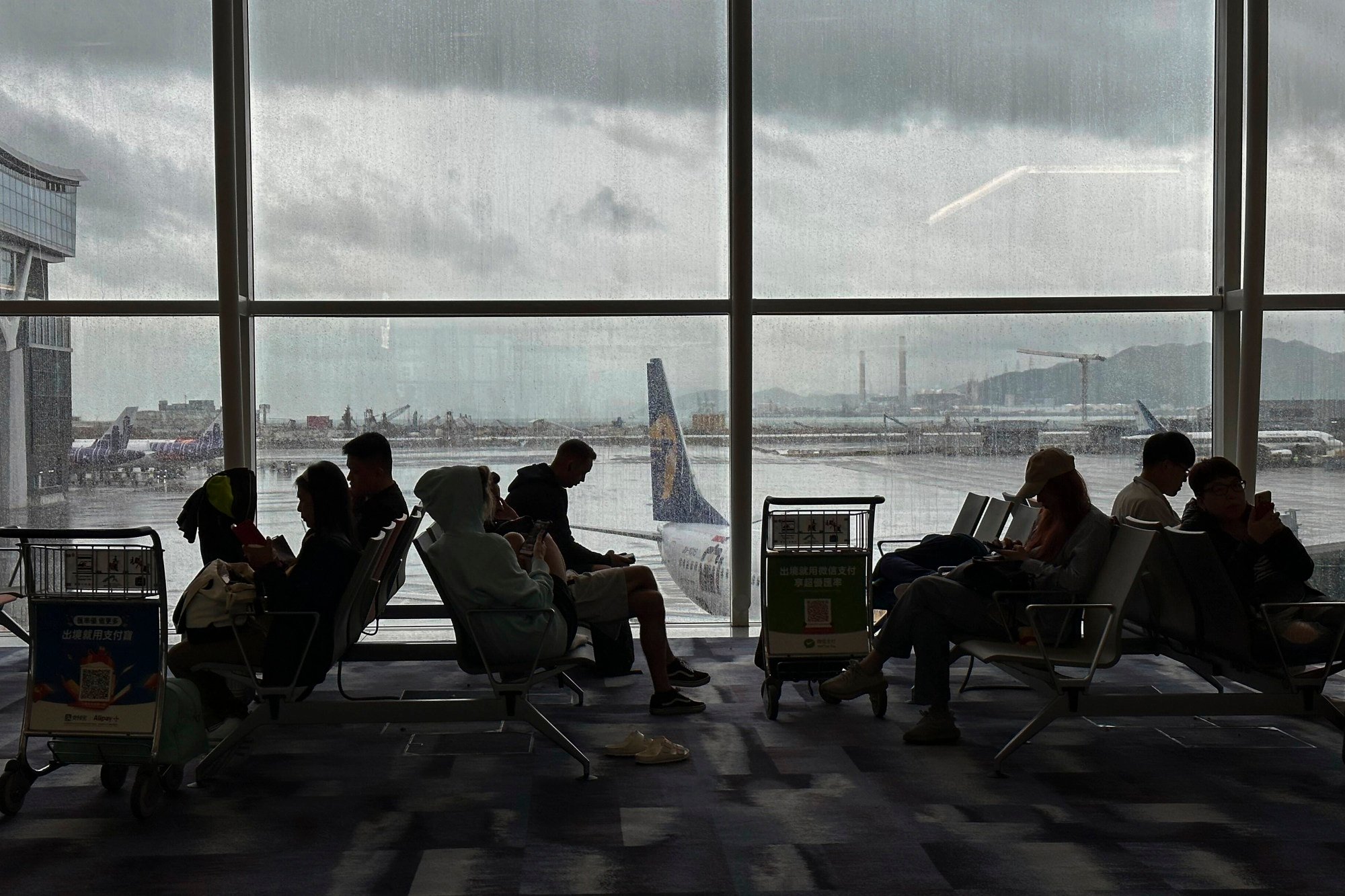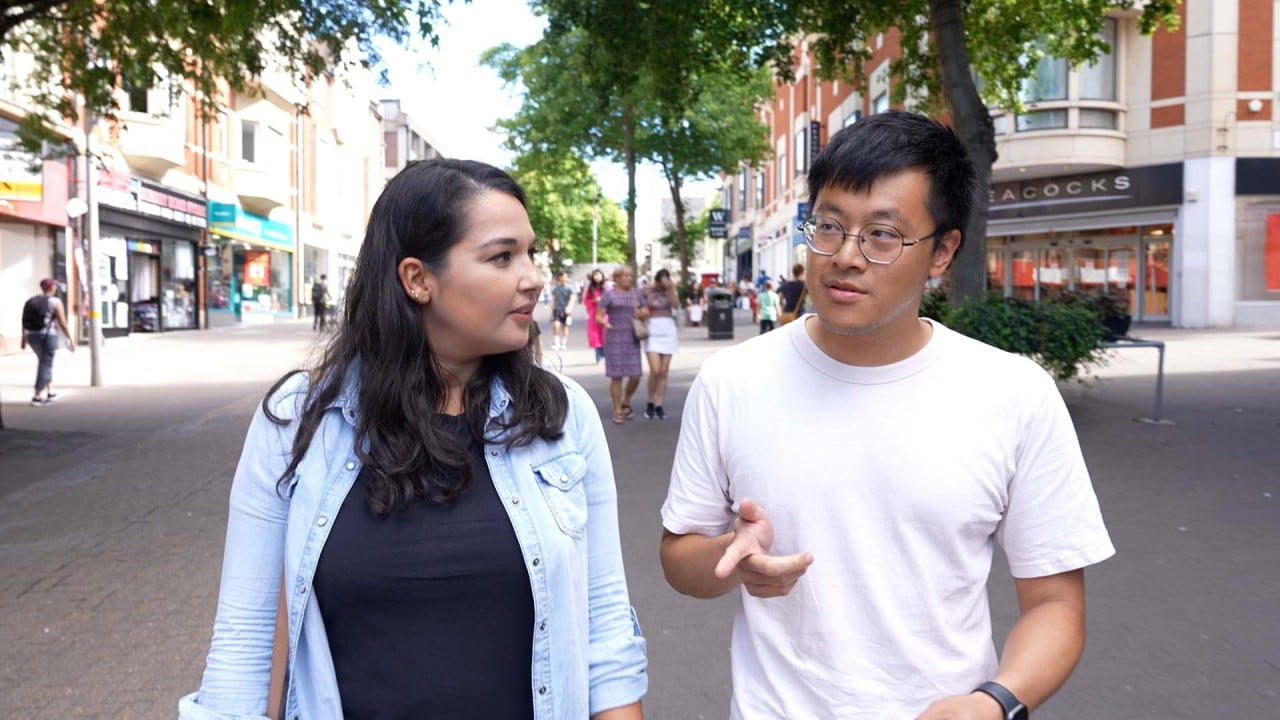
Half of BN(O) migrants struggle to find jobs that match their skills, but 99% have no plans to return to Hong Kong, study finds
- More than 2,000 Hongkongers who emigrated under British National (Overseas) visa programme surveyed on work, finances, emotional well-being
- While respondents have complaints about jobs and pay, nearly all say they have no plans of moving back to Hong Kong
Hongkongers who moved to Britain are struggling to find work that matches their skills, and those with jobs complain of being overqualified and underpaid, despite being more highly educated than locals, a study has found.
Despite the difficulties, BN(O) migrants had elected overwhelmingly to stay in the United Kingdom, with 99 per cent saying they had no plans to return to Hong Kong, the survey released on Wednesday said.
“The most authoritative study to date of newly arrived UK migrants from Hong Kong, published today finds that most Hongkongers feel welcomed in Britain and 99 per cent plan to stay permanently,” said the Welcoming Committee for Hong Kongers and British Future, which conducted the poll.

The study examined a plethora of aspects of the migrants’ lives, including their sense of belonging and feeling welcomed, financial pressures and their physical and emotional well-being.
The report found 36 per cent of respondents held a graduate degree and 23 per cent had a postgraduate one, compared with 34 per cent of degree holders among the wider British population.
‘Collective healing’: Hongkongers abroad revel in gigs, films from home
Only 52 per cent of respondents aged 65 and under had landed a job, and 47 per cent of those said their employment did not match their skills and experience, or did so only to a small degree.
The study found 24 per cent reported being unhappy over their pay, and one-fifth said they were overworked.
The major issues hindering Hongkongers in the job market were a lack of confidence in their ability to speak English, a failure to have their qualifications recognised and a dearth of career advice and support, according to the study.
Only 11 per cent of the respondents said that their spoken English was “very good”.
One in eight said they felt isolated at work, while 5 per cent reported instances of discrimination.
The survey organisers called on the British government to put in place strategies to “make the most” of migrants’ skills and potential and address the needs of Hongkongers through clearer access to guidance on jobs and careers. Migrants should also be referred to professional bodies to validate their qualifications, it added.
Financial stability was another concern, with 40 per cent saying it had worsened and 10 per cent indicating it had “worsened greatly”, with the main contributing factor being a higher-than-anticipated cost of living.
The UK’s cost of living crisis began in 2021, the same time that some Hongkongers began emigrating.
But on the positive side, Hongkongers who had moved to the UK since 2021 reported feeling welcomed in their communities and said they were striving to integrate, with interactions with neighbours being the common type of social contact.
Number of Hong Kong students at England schools surges 400 per cent in 2 years
“Many Hongkongers arriving in the UK are highly educated, often skilled professionals – yet they are more likely to be unemployed or working in jobs below their skill level,” said Heather Rolfe, research director of think tank British Future and co-author of the report.
“The initial support they need – with English language, careers and employment advice – is often available but isn’t always being accessed.
“There is potential for Hongkongers to be a great migration success story. People are keen to integrate and settle in Britain long-term. They can build good lives here, help to fill skills gaps and stimulate economic growth across the UK. We just need to ensure they can find the right help at the start of that journey.”
Britain offered the visa scheme after Beijing imposed the national security law on Hong Kong in 2020. BN(O) migrants can apply for settled status after five years of qualifying residence, and after one year of settled status, they can apply for citizenship.


